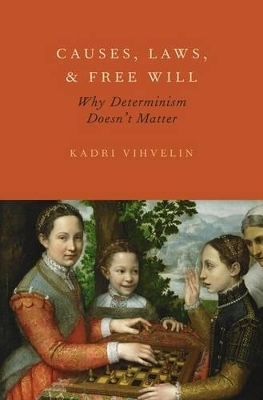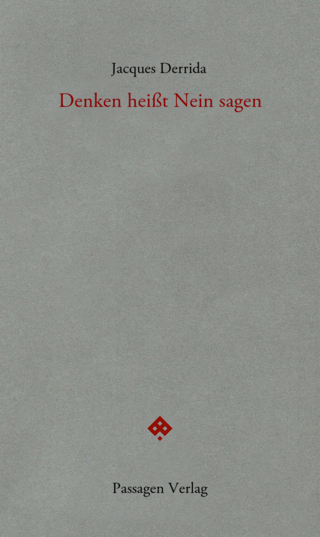
Causes, Laws, and Free Will
Oxford University Press Inc (Verlag)
978-0-19-979518-5 (ISBN)
Common sense tells us that we are morally responsible for our actions only if we have free will - and that we have free will only if we are able to choose among alternative actions. Common sense tells us that we do have free will and are morally responsible for many of the things we do. Common sense also tells us that we are objects in the natural world, governed by its laws. Nevertheless, many contemporary philosophers deny that we have free will or that free will is a necessary prerequisite for moral responsibility. Some hold that we are morally responsible only if we are somehow exempt from the laws of nature. Causes, Laws, and Free Will defends a thesis that has almost disappeared from the contemporary philosophical landscape by arguing that this philosophical flight from common sense is a mistake. We have free will even if everything we do is predictable given the laws of nature and the past, and we are morally responsible whatever the laws of nature turn out to be. The impulses that tempt us into thinking that determinism robs us of free will spring from mistakes - mistakes about the metaphysics of causation, mistakes about the nature of laws, and mistakes about the logic of counterfactuals.
Kadri Vihvelin is Associate Professor of Philosophy at the University of Southern California.
CONTENTS ; Chapter 1 The Problem Introduced: Would Determinism Rob us of Free Will? ; 1. Free Will, Ability to do Otherwise, and the Basic Argument ; 2. Determinism and some Distinctions ; 3. Narrow Ability, Wide Ability, and the No Choice Argument ; 4. The Basic Argument Extended and Two Ways of Replying: Metaphysical Compatibilism and Moral Compatibilism ; 5. How I propose to Navigate the Treacherous Waters of the Free Will/Determinism Problem: A First Road Map of the Book ; Chapter 2 The Problem Distinguished: Is it Possible for Us to Have Free Will? Do We Have Free Will? ; 1. Two Questions about Free Will: The Possibility Question and the Determinism Question ; 2. Some Remarks about Methodology ; 3. The Existential Question and Common Sense Compatibilism ; 4. Impossibilism: Five Arguments for Fatalism ; 5. Hard Determinism or Impossibilism? Five Versions of the Clarence Darrow Argument ; Chapter 3 Abilities, Choices, and Agent Causation ; 1. What This Chapter is About and Why ; 2. The Common Sense View (and the Limits of Common Sense) ; 3. Two Steps Beyond Common Sense: Limited Laws Indeterminism and Agent Causation ; 4. Are Events the only Causes? Could an Object be a Cause? ; 5. Could an Agent be a Cause? ; 6. Where We Are Now ; Chapter 4 The Unavoidability of Metaphysics: Moral Responsibility and Ability to do Otherwise ; 1. Alternatives, Choice, and Moral Responsibility ; 2. Frankfurt's Bold Gambit and the Long Debate that Followed ; 3. Two Ways of Getting Someone to Do What you Want ; 4. Heads I Win, Tails you Lose ; 5. Why There is No Middle Way (Why Putting the Pre-Emptor on the Scene Doesn't Help) ; 6. Freedom of Action, Freedom of Will, and Three Ways of Having a Choice ; 7. Frankfurt's Intuition Reconsidered: Why the Subtraction Argument Fails, Why the Supervenience Argument Fails ; 8. Lessons for Compatibilists ; Chapter 5 Arguments for Incompatibilism ; 1. No Forking Paths Argument ; 2. No Present Causes Argument ; 3. No Agent Causes Argument ; 4. No Inner Commander Argument ; 5. Manipulation Arguments ; 6. The Consequence Argument ; Chapter 6 The Abilities and Dispositions of our Freedom ; 1. The Big Picture: the Bundle View ; 2. Abilities and Dispositions ; 3. Dispositions and Counterfactuals ; 4. The Intrinsic Dispositions Thesis and Frankfurt's Argument ; 5. Wide Abilities, Choice, and the Consequence Argument ; 6. Historical Interlude: Objections to the Simple Conditional Analysis Reconsidered ; 7. Virtues of the Bundle View ; Chapter 7 Laws, Counterfactuals, and Fixed Past Compatibilism ; 1. What this Chapter is About and Why ; 2. How the Laws Constrain ; 3. Counterfactuals and Our Experience of Choice ; 4. Counterfactuals: From Goodman to Lewis ; 5. Choice Counterfactuals and Fixed Past Compatibilism ; 6. Concluding Remarks ; Notes ; References ; Index
| Verlagsort | New York |
|---|---|
| Sprache | englisch |
| Maße | 236 x 163 mm |
| Gewicht | 587 g |
| Themenwelt | Geisteswissenschaften ► Philosophie ► Erkenntnistheorie / Wissenschaftstheorie |
| Geisteswissenschaften ► Philosophie ► Ethik | |
| Geisteswissenschaften ► Philosophie ► Logik | |
| Geisteswissenschaften ► Psychologie | |
| ISBN-10 | 0-19-979518-5 / 0199795185 |
| ISBN-13 | 978-0-19-979518-5 / 9780199795185 |
| Zustand | Neuware |
| Informationen gemäß Produktsicherheitsverordnung (GPSR) | |
| Haben Sie eine Frage zum Produkt? |
aus dem Bereich


